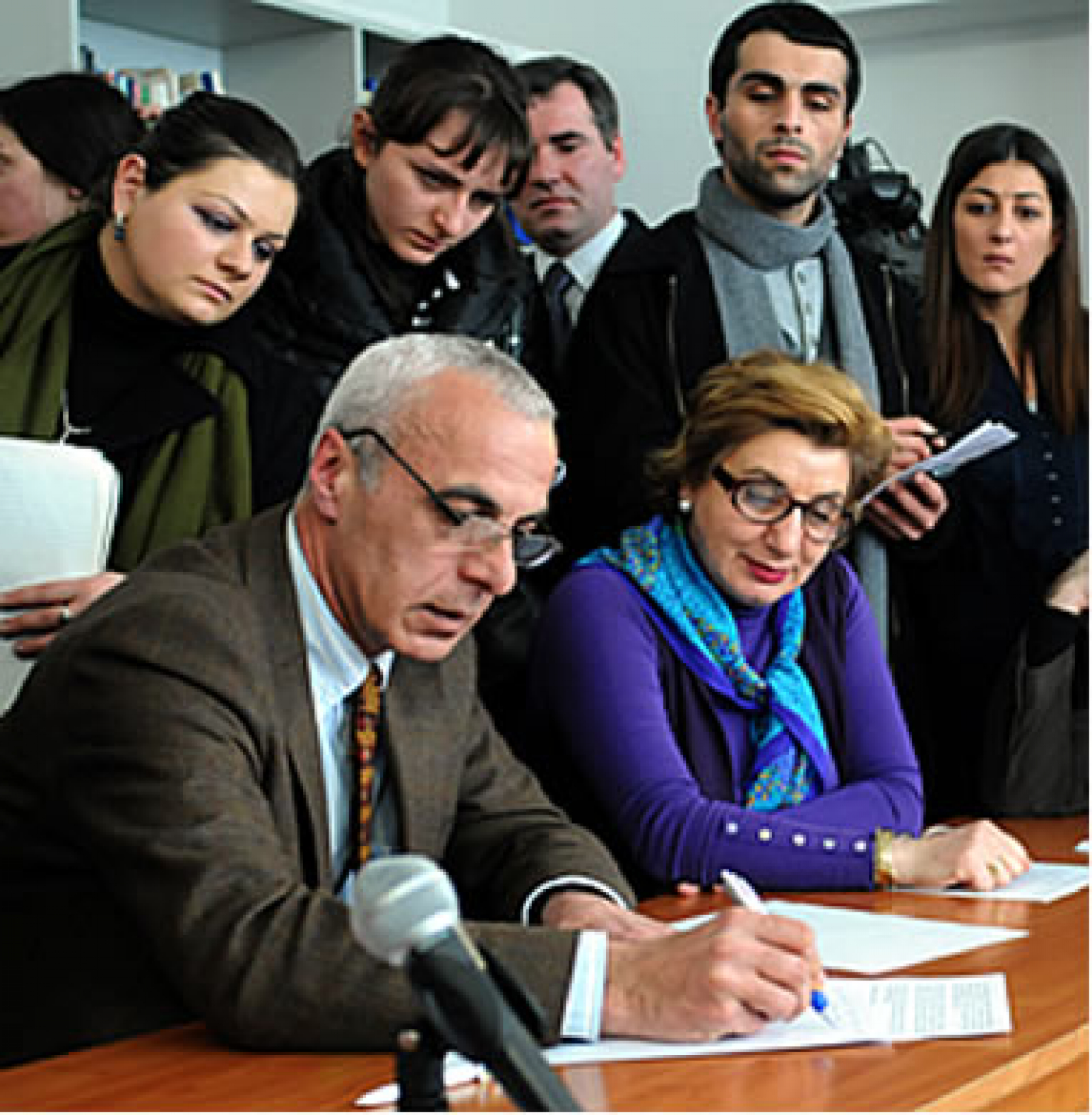
SHARE
Thirteen political parties in Georgia have signed an agreement setting the format for a nationwide public television channel, called the Second Channel, that will broadcast the activities of the Georgian parliament and opposition parties.
NDI facilitated meetings between political parties and the television channel's management toward the development of an agreement. The agreement was signed on Feb. 22 at the NDI office in Tbilisi, and outlines what would be broadcast, how it would be presented and how to ensure equity among parties. NDI's public opinion research in Georgia has demonstrated that the lack of independent media is a major concern for citizens. Opposition parties' frustrations over access to the media have fueled street protests in the past. The Second Channel is an effort to ensure opposition access to nationally-broadcast television. The final agreement lays out that the new channel will broadcast live coverage of parliamentary plenary and committee sessions, as well as unedited and live coverage of opposition party activities. Opposition parties will have rotating daily access to one hour of primetime programming. The agreement also states that parties that have not signed the agreement but which meet certain criteria can air unedited versions of their press conferences and briefings.
The channel will organize debates at least once a week on draft laws being considered by Parliament and on other political issues when Parliament is not in session.
The agreement itself is an achievement in a country where the political environment is highly polarized. In addition, the new channel promises to bring more balance to the media landscape and more transparency to a political process that has been seen as inaccessible to citizens.
The agreement is the culmination of a media working group that NDI has been hosting at the request of the Speaker of Parliament. In order to give voice to the widest spectrum of political views, the working group included representation from all interested political parties, including those now in the parliament as well as those outside it. The media working group follows a similar NDI-facilitated, multiparty group that was tasked with reform of the electoral code in advance of the May 2010 municipal elections. President Saakashvili referred to NDI and the working group in his February state of the union address. While the group ultimately failed to reach consensus on the threshold for electing the Tbilisi mayor, consensus was achieved on such issues as a new electoral system, composition of the Tbilisi city council, and the process for electing a new Central Election Commission Chair. Amendments to the electoral legislation reflecting these agreements were enacted into law in December 2009.
Pictured above: Aleko Shalamberidze (L) of the "People's Party" signs the NDI-facilitated agreement on reform of a new public political television channel.
Published March 5, 2010


